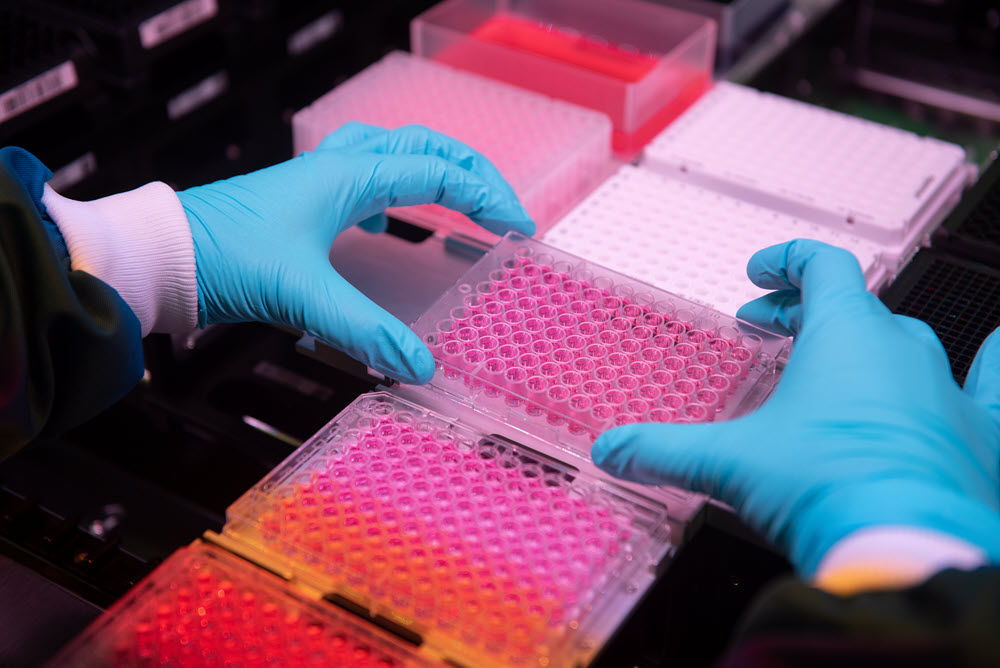Human biosamples can provide a bridge between laboratory research and clinical information about actual patients. It does this by enabling researchers to study a disease directly in the laboratory, and to link the results with what is known about the clinical behaviour of the disease.
We aim to give donors the confidence that their donation will make a difference and that they will be making a personal contribution to the fight against diseases such as diabetes, obesity and haemophilia.
1 Respect of legal and ethical rights
Novo Nordisk recognises its responsibility to respect the legal and ethical rights of the people who donate human biosamples.
2 Compliance of laws and regulations
Novo Nordisk’s research using human biosamples complies with all relevant national and international laws and regulations and takes note of external guidelines on bioethics and best practice, insofar as they apply. Novo Nordisk’s internal governance processes assure the legality and ethics of its uses of biosamples.
3 Consent of donation
Biosamples must be donated with appropriate consent, or with legally and societally acceptable alternatives to individual donor consent where necessary. Consent to donate human biosamples should not be influenced by coercion, financial inducements or give rise to financial gain for the donor or next of kin. All uses of biosamples and data must always be within the scope of consent.
4 Right to withdraw consent
The right of donors to withdraw consent for future uses of their biosamples must be respected, where practicable, without question and without detriment to their clinical care.
5 Financial transactions
Novo Nordisk has strict standards for financial transactions relating to the acquisition of human biosamples for research uses. These are aligned with Article 21 of the Convention on Human Rights and Biomedicine of the Council of Europe, which states that the human body and its parts must not directly give rise to financial gain.
6 Approval by ethics committee
Public trust and confidence are protected by ensuring that research activities using human biosamples and data are approved by an ethics committee (EC) / Institutional Review Board (IRB) or equivalent, where applicable.
7 Privacy protection
Novo Nordisk protects the privacy of people who donate human biosamples by safeguarding the use of biosamples and sensitive personal data with appropriate security measures.
8 Clinical trials
Novo Nordisk’s position on Clinical trials covers additional aspects of the use of human biosamples and data obtained from people enrolled in our clinical trials.
9 Stem cells
Novo Nordisk’s position on Stem cells covers additional aspects of the use of stem cells in research and the development of cellular therapeutics.
Novo Nordisk uses human biosamples during research to discover new treatments for the diseases we focus on. We also use human biosamples to do tests during our clinical trials of potentially new medicines, to study their effect and how patients respond.
Novo Nordisk relies on and is grateful to the many people who are willing to donate biosamples for use in research. Human biosamples are obtained from donor banks, tissue biobanks, or individuals participating in biomedical research projects and clinical trials via collaborating universities, hospitals and other research organisations. Research using human biosamples is done at Novo Nordisk’s own facilities and in collaboration with external partners.
Novo Nordisk takes a responsible approach by addressing the bioethics issues in relation to the acquisition, storage and use of human biosamples. Biosamples used by Novo Nordisk are obtained from several countries that are governed by national laws and international conventions. Although variations exist in local laws, cultures, customs and practices, internationally common principles provide the foundation for Novo Nordisk’s position. All Novo Nordisk’s research work using human biosamples must align with this position.
Novo Nordisk continuously reviews its bioethics standards and conduct relating to the acquisition and use of human biosamples and interacts with regulatory bodies and other key stakeholders to maintain and further develop the appropriate ethics standards at an international level.
Download our brochure about human biosamples in pharmaceutical research:
